Handwoven basket bags by Uri celebrate Filipino craft
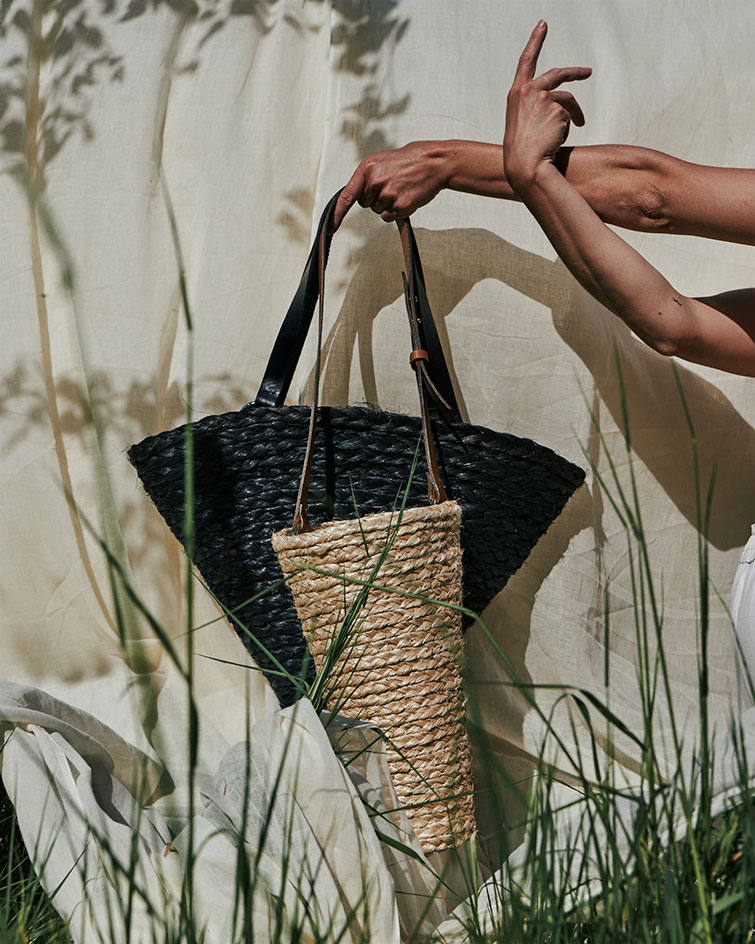
Like many women embarking on motherhood, creative producer Charly Jacobs was prompted to think about the sustainability of life on earth after the birth of her daughter. Inspired by her own mother’s Filipino heritage, Jacobs took a deep dive into discovering the natural materials, handcraft traditions and tribal communities that are synonymous with the charm and beauty of the Philippines. The result of making those connections is Uri, a London-based handbag label that works with Filipino makers to create its handwoven baskets.
‘My design process began when I was pregnant and continued into the highs and lows of early parenthood. During that time, I retreated to my parents house in the countryside and painted daily,’ Jacobs shares about the inspiration behind Uri’s organic forms. ‘I found myself drawing my growing shape again and again. The sculptural shapes of Isamu Noguchi [also] remained a constant source of inspiration for the designs that would go on to form the foundation of Uri’s look. I am an avid fan of basket bags and will use them until they fall to pieces, but my aim was to find a way to create one that lasted.’
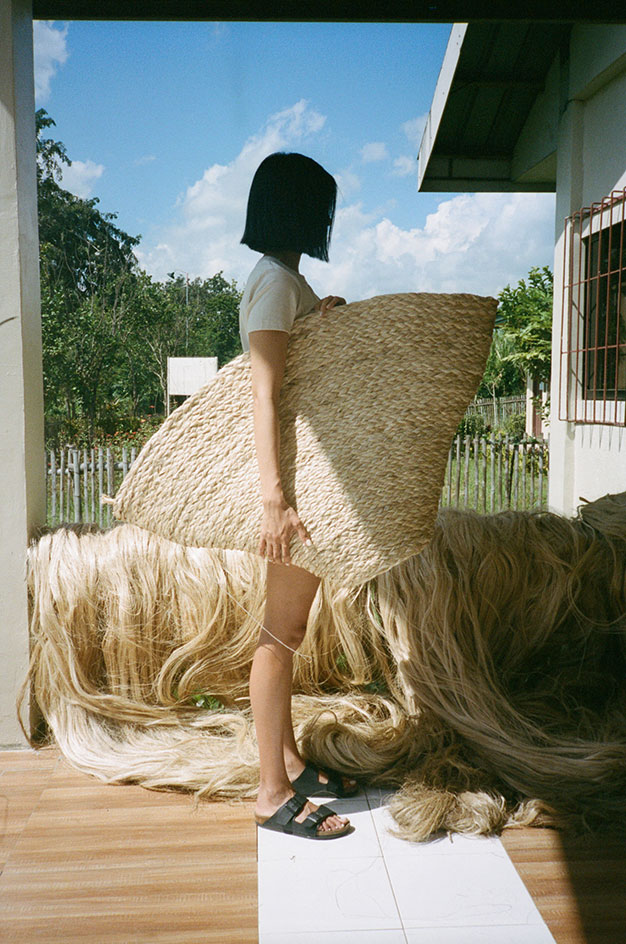
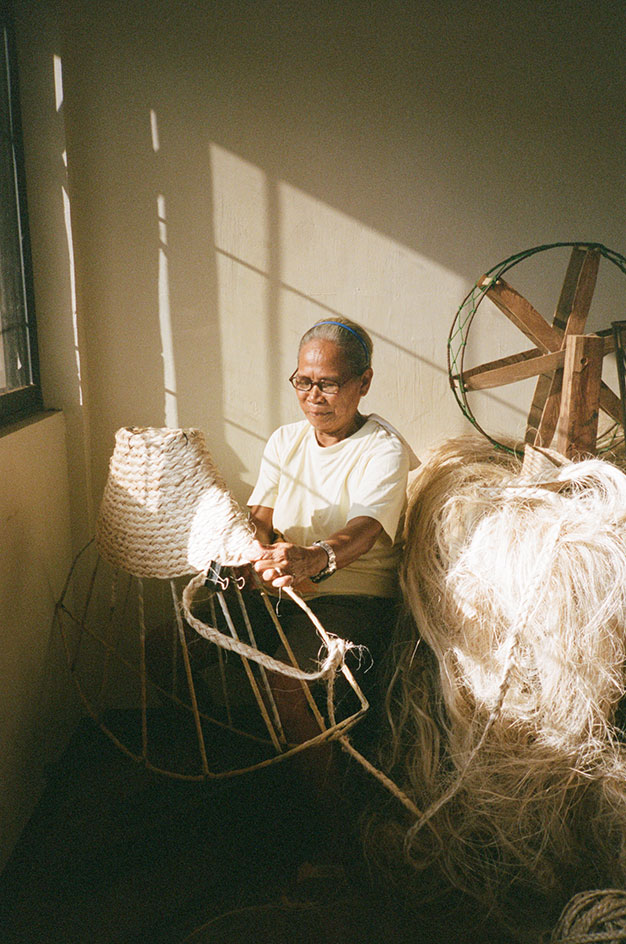
Above and below, Uri's makers
Made from natural and undyed plant fibres, ranging from Abacá (Manilla hemp) to pandan leaves, each Uri design is made from modular compositions that are assembled in the Philippines and finished in the United Kingdom. Jacobs has established a network of farmers and makers to help develop and maintain sustainable practices at every step of the way. From locating farming, production and sampling in the Filipino region of Visayas, where Jacobs’ Filipino side of her family oversees operations, to collaborating with a community of female makers, who are mostly single mothers or grandmothers that have been left to care for their children and grandchildren while family members work abroad, Jacobs has ensured that Uri is as much about making the most of underutilised natural materials as it is about empowering communities in need.
RELATED STORY
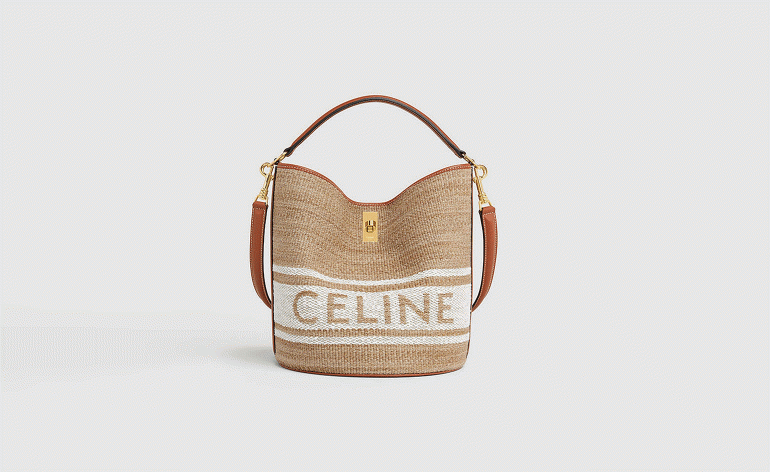
‘As a sole parent, I know the value of time, and employing mothers and grandmothers means providing a safe place to play and study in our workshops, whilst financially supporting these matriarchal pillars of the community,’ adds Jacobs, who partnered with the Local Economic Development and Investment Promotion(LEDIP) Center in the Province of Iloilo, which focuses on reducing poverty through creating jobs and promoting investment. ‘
Our full supply chain from farm to fibre is possible because of a plot of family land I didn’t know existed until my first business trip to the province. My cousin made me aware of the plot of existing farmland and the government graciously donated some Abacá saplings for us to plant there, not only giving us the chance to sow the literal seeds of our supply chain on family soil but encouraging the growth and trade of this biodiverse fibre. We grabbed the opportunity with both hands and around two years later we are months away from having our full supply chain in working order. We also built everything from a simple braid technique, ensuring makers of every level could learn the techniques and adapt as our lines grow. ’
Each handbag is finished in the United Kingdom, where leather handles made by craftsman Kingsley Walters are attached. An inner lining made from 100% hemp is also created to ensure the longevity of the bag. Built to last, the bags are designed to adapt and evolve with use and time.
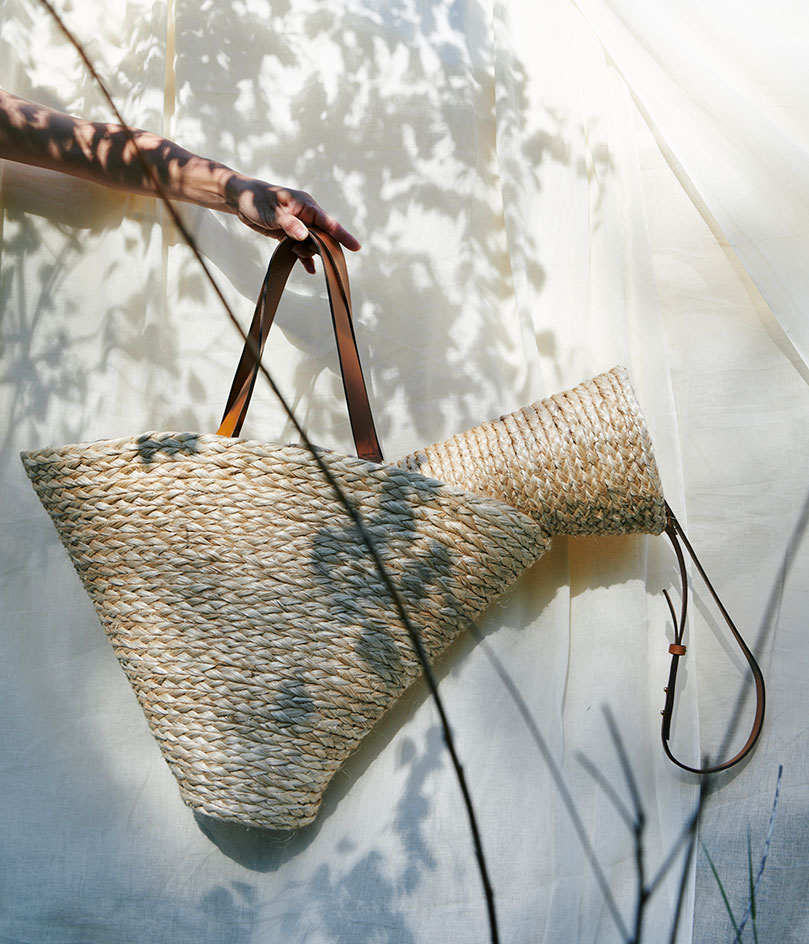
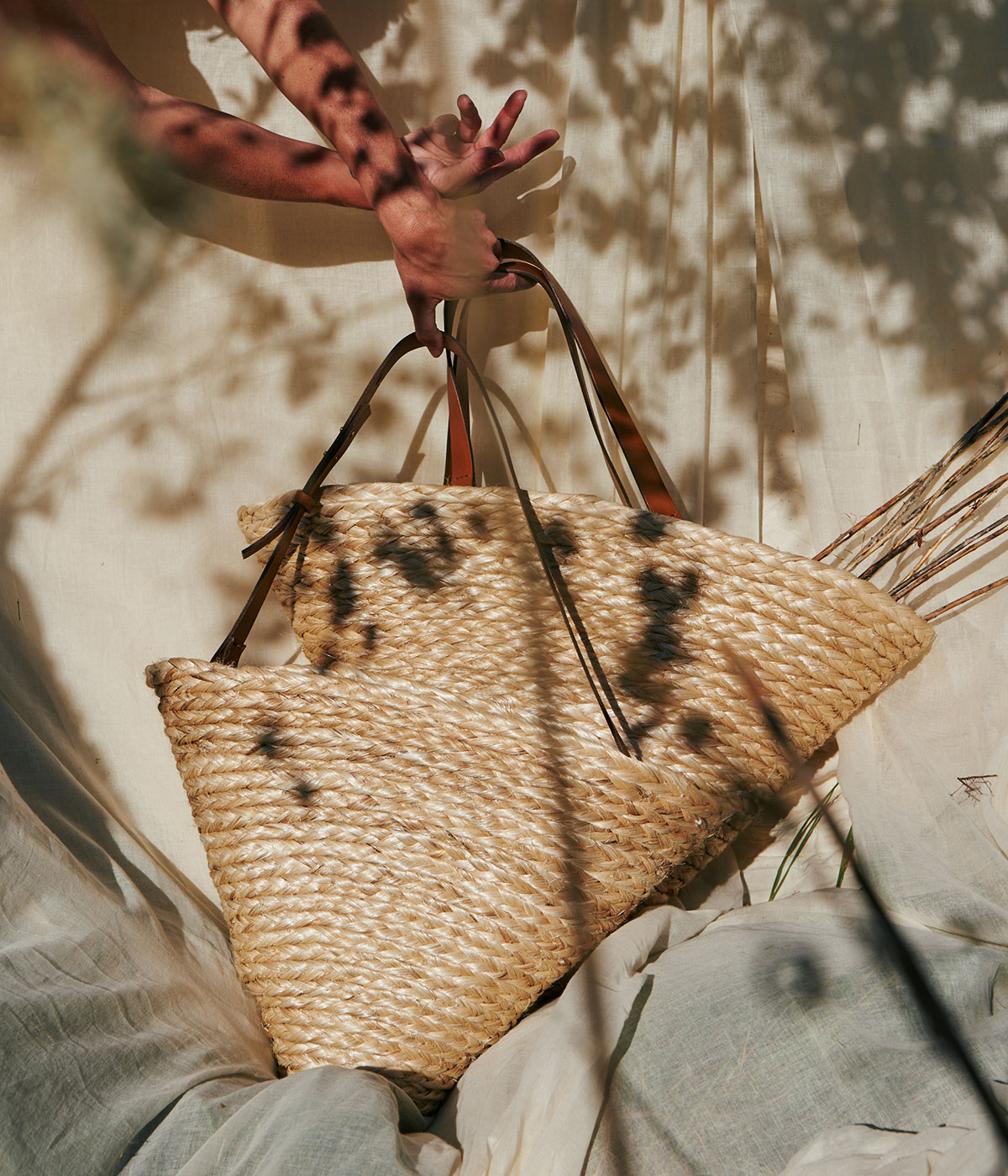
INFORMATION
Receive our daily digest of inspiration, escapism and design stories from around the world direct to your inbox.
Pei-Ru Keh is a former US Editor at Wallpaper*. Born and raised in Singapore, she has been a New Yorker since 2013. Pei-Ru held various titles at Wallpaper* between 2007 and 2023. She reports on design, tech, art, architecture, fashion, beauty and lifestyle happenings in the United States, both in print and digitally. Pei-Ru took a key role in championing diversity and representation within Wallpaper's content pillars, actively seeking out stories that reflect a wide range of perspectives. She lives in Brooklyn with her husband and two children, and is currently learning how to drive.